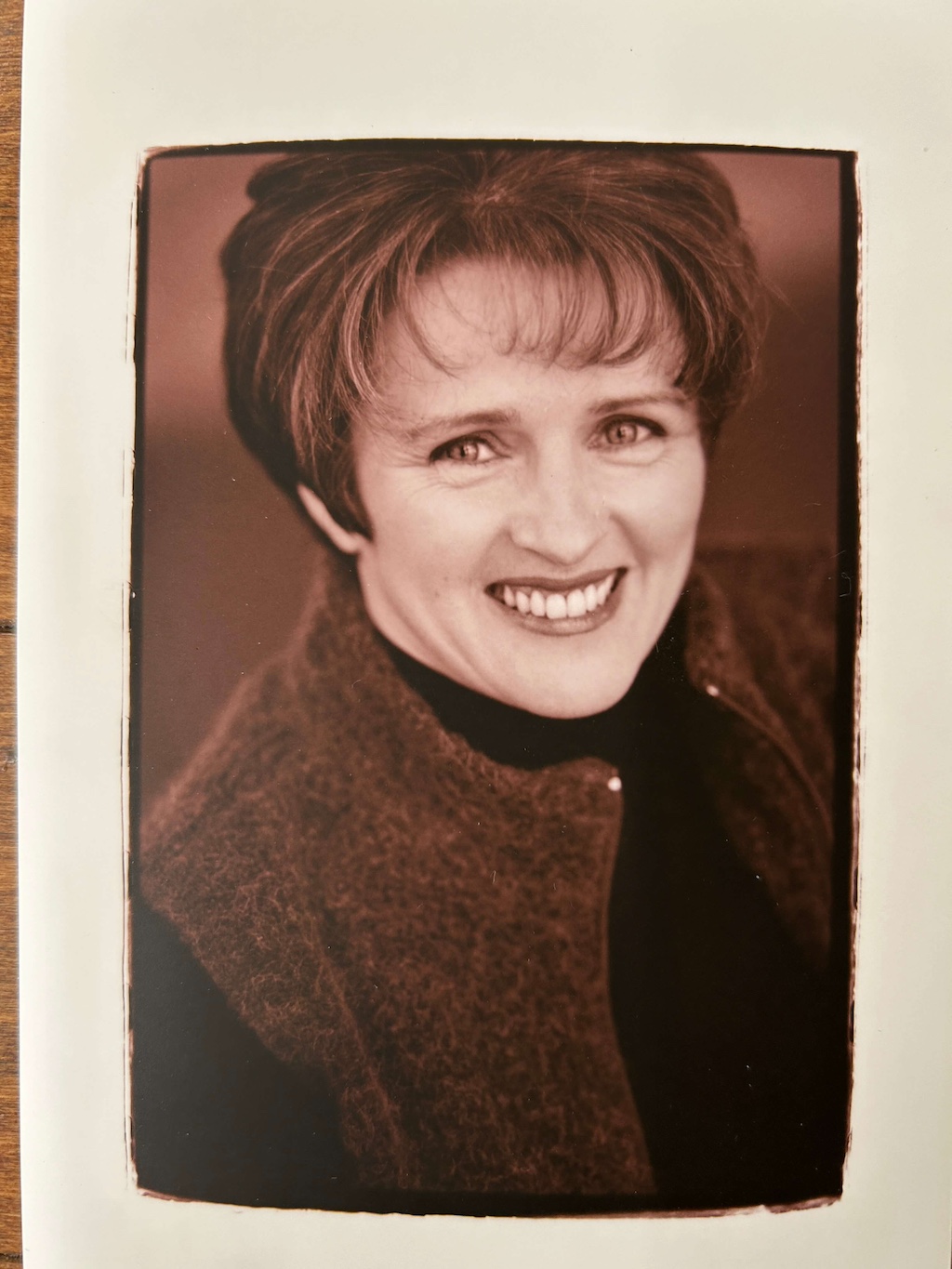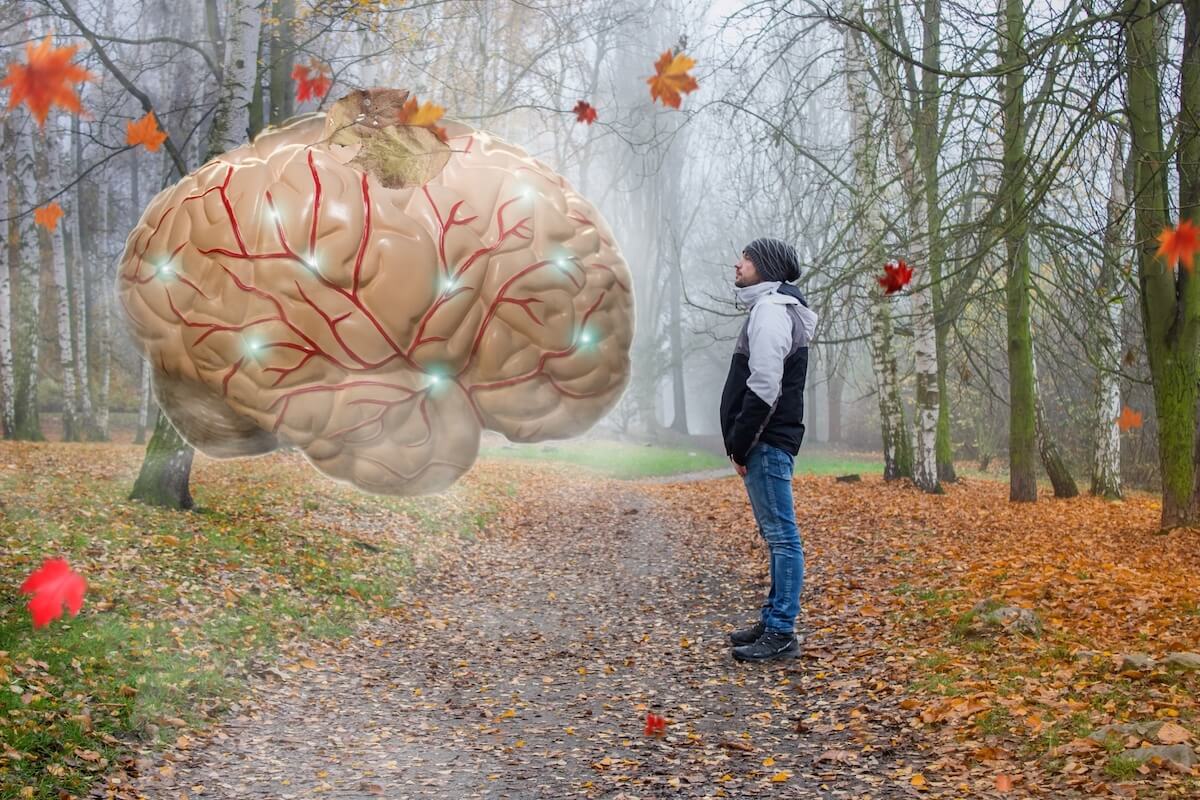Emotionally Overloaded?
The day may not start out with anything emotionally triggering. However, after running errands, multitasking through the day, and facing umpteen interruptions, is it surprising that you've become emotionally overloaded?
Picture it . . . now you're saying something you don't mean, making a bad decision, and feeling decidedly not yourself.
There is something wrong, but it may not have much to do with what's emotionally triggering you. It may simply be that your nervous system is maxed out. When your mind and body are stretched beyond their capacity, emotional distress is a natural consequence—even if there is no obvious trigger.
It's important to take a step back, re-center yourself, and focus on restoring balance to your nervous system.
That little bit of intel saved my life.
We Can Learn from What Happens in Therapy Whether You're in Therapy or Not
I'm working on having the controls show - for now - just click the play button to start the video.
NEXT: Go to your Inbox and pick up your copy of the Chill.
If you opted for a Customized Plan, look for your next video
in my follow-up messages.
Can I share my story with you . . .

You'd think getting a doctorate and having lived four decades on this planet, a person would have found her way in the world. Nope. I was lost and still felt like a novice—a child even—amongst the world of adults.
But I was an "early bloomer" and had always been a responsible kind of person so I knew what it took to look "pulled together.
That "skill"—like most coping mechanisms learned early in life—would later catch up with me.
As the years clicked by, I found it increasingly difficult to control feelings of being emotionally overloaded. You may be familiar with those cringe-worthy moments when an off-hand remark slips out before you have a chance to think it through, revealing a side of yourself that's unprocessed and needy. It's like a repeating cycle of unnecessary drama that you can't seem to shake off.
I was aware that something wasn't right. I felt like I was rushing frantically through life without any sense of inner direction. It seemed like external forces were pushing me to do what I was "supposed" to do - get a job, socialize with friends, and make a positive impact on the world. Despite seeing multiple doctors and therapists (14, to be exact), no one had been able to pinpoint the root of the issue.
Even though I had a background in psychology, it wasn't until after experiencing two bouts of clinical depression and an eating disorder that I began to connect the dots between my past and present struggles. My childhood was marked by poverty, neglect, and sexual and physical abuse, and while I could talk about these experiences in a detached way, I didn't truly feel the impact of those traumas. It was difficult for me to realize that they were still affecting me and holding me back in my adult life.
I guess I was my own worst enemy. Being able to "fake it" meant I didn't present as needing help. Though I had suffered through two clinical depressions up to that point—it was only time that got me out of those dark places.
That left me in a kind of limbo, feeling undirected, under functioning and lost.
Eventually, I did find the solution, and as I enthusiastically pursued my healing I had an epiphany: I came to see my mental health, with all my "neurotic" tendencies, was not some mysterious disorder I'd have to cope with for the rest of my life. It was simply the result of adaptations my nervous system had made to the dangers I had experienced up to that point in life.
Basically, my brain had learned the world is not safe. This created a host of anxiety-related problems: wariness of getting too close to people, a phobic response to being alone, being emotionally blunted, enduring high levels of tension in my body (and numerous somatic complaints), and a deteriorating level of concentration that at some points left me feeling like I could barely put two words together.
Consider the observation that a fish only 'knows' the world is made of water. It cannot imagine a world like ours, that consists only of air. Similarly, because the borders of my life had become so constricted over time, I wasn't aware of how much of life I was missing.
In effect I was stuck living the story of Bill Murray in the movie Groundhog Day. Not knowing there was a better way to be, my inner life just repeated itself day after day. I didn't look for a way to change for the better because I didn't even see that transformation was what I desperately needed.
I would humbly like to share the essential truths that I have learned and now live by. Perhaps my experiences can be of benefit to you, and I hope that these lessons can help you on your own journey.
Essential Truths to Live By
(to avoid emotional overload)
Your perception of the world is largely shaped by your nervous system
Your perception/experience of the world—whether it's a dangerous world, a chaotic world, a benevolent world, whether it's moving too fast or too slow for you etc—is the result of your own internal neurophysiology primarily the autonomic nervous system (ANS).

In a phrase, if you're wound like a top inside, everything you think and perceive will be seen through that lens.
Though the frequency at which a person vibrates is not visible to the naked eye, it's a palpable sensation that's recognizable to anyone that's been there before.
I remember dating a guy in my early 40's. Instinctively, I knew not to ask him to accompany me while I walked my dog. By that point my healing at begun and I had more resiliency in my nervous system. Though I had a long way to go, I was already less revved up. I knew the generally slow pace of walking Bobbi my Pomeranian with her frequent stops would be too irritating for my friend.
I could still easily recall how strolling amongst my friends was always excruciatingly difficult. I'd walk many feet ahead of them turning back occasionally to keep our connection and to avoid being labelled "rude".
The world was just too slow for my internal speed. What I didn't know was how this general unsettledness shaped the choices I made.
The universe conspires in your favor
No matter how much you try to ignore them, your inner demons have a way of persisting and wreaking havoc in your life.

At first, they may seem like insignificant whispers in the back of your mind, but if left unaddressed, they can grow in intensity and become increasingly difficult to ignore.
Take for instance the case of a couple who only consider counseling when they're at their breaking point.
By this time, significant damage may have already been done to their relationship. It's going to take much longer to heal these wounds and the chances for repair is now much lower.
Eventually you'll reach a point where you have no choice but to deal with the issue(s).
What I have noticed is that if I do wake up to the issue at hand AND I'm able to work it through, I end up feeling rewarded in some small way. I can't say always that it's a direct correlation however, my life seems to expand.
The clearest example of this was in working through some pain in my own therapy, afterwards I was in turn, able to provide deeper work with my clients. I felt more confident. My clinical work got easier.
Moral of the Story: it's far easier to stay on top of your inner growth, and work through what the universe is putting before you. Saves a lot of headaches in the end.
Anxiety affects more than your mind
If you experience any of the symptoms related to anxiety (that you saw on the mini-quiz), then whether you're aware or not, you are likely suffering from other aspects of anxiety that the textbooks don't talk about.
You might for instance, ask yourself if you can have deep, satisfying yawns when you're around others or even on your own - does the yawn get stuck in your throat? Do you laugh like you used to? Do you withdraw from life more today than before? Does your mind often go blank? Find it hard to let things go?
If you experience anxiety there's also a good chance your concentration and 'thinking through' skills have deteriorated. Unless you've been traumatized lately, it's likely that it's been a relatively seamless process happening outside your awareness.
In other words, as the resiliency of the nervous system deteriorates—and it often takes years—you may not know the extent to which your brain is already under-functioning today.
The 'good news flip side' to this possibility is that if you do choose to take this journey to repair, heal and optimize your nervous system, you're in for a few pleasant surprises.
Energetically we're all connected
Energetically we're all connected. Therefore, the fastest way to change your nervous system is to have it "learn" from the nervous system of another. (Understandably it works best when that "other" has the better (self) regulating nervous system).
That's actually how we expand our nervous system 'capacity' when we're born: it's through our interactions with our parents/caregivers.
On that thought, it's important to note that this learning process is a 'right brain to right brain' experience. It means that big, heart-felt emotions teach best. When your caregivers are in positive feeling-modes as they interact with you, you feel the positivity and your nervous system learns from exchange of energy.
However, this is only half the equation.
Yes, we need to know how to regulate our emotions and behaviors around others. But we also need to be able to regulate ourselves on our own. (ie. to self-regulate) Significant results can be achieved merely by working on yourself, by yourself.
You are responsible
Ordinarily, we're not responsible for the automatic internal reactions to what triggers us. (Those reactions were often laid down in memory banks early in life).
However, you are responsible with what you do with your reactions. The person/event is not the cause of your reaction - only the triggering agent. In other words, you are totally responsible for your feelings.
If you genuinely feel others are to blame for where you are in your life (ie. you are always the victim), then I definitely recommend therapy.
The plasticity (physical adaptability) of the ANS makes it possible to literally change your neurophysiology in a moment of time, or over long passages of time. (The benefits of this practice continues to delight me!)
Emotionally backed up? You're going to have "leakage"
The more emotionally "backed up" you are, the more your nervous system will tighten to "contain" it. You will "leak" emotionality at times, and often with little control, owing to that backlog. Routinely moving through your emotions is key to improving nervous system resiliency.
A baby step approach is a gentle and easy way to learn to move through emotional content.
Regardless, there is good news
The good news: although you may not understand and/or agree with what I've said here, I promise that you can change and be anxiety-free (ie. away from chronic anxiety) (Anxiety will only be there when you truly need it and it is appropriate to the situation.)
You don't actually need to know how you got here, or even understand the nervous system to get better (I don't need to know how a light bulb works but I know how to turn it on.)
Working with the nervous system need not be a complicated affair. You can get rid of everyday anxiety and feel like a transformed person - if you have the commitment it takes to change!
